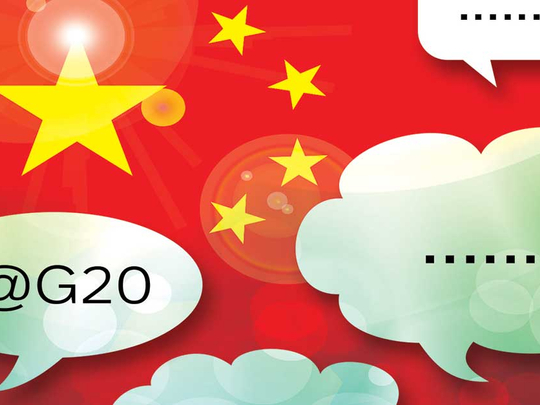
We’ve just completed another G20 Heads-of-State Summit-for the first time with China serving as host. As was the case prior to the previous 10 such events, reporters called up international economic governance experts and asked us: “What major reforms and, per chance, surprise policy changes, to reshape the globe’s economic architecture in order to boost the world’s prosperity will come out of the meetings?”
Yawn.
Taken together, the members of the G20 represent two-thirds of the world’s population and account for 85 per cent of global GDP. Yet, regrettably, as in the past, the G20 gabfest did not produce much substance, let alone any surprises of consequence. Why is that?
The precise wording of various G20 consensus position papers had been laboriously ironed out over the past nine months by lower level government officials. The remaining task for the leaders was to tweak bits of text of an already prepared G20 communique.
Given that customarily these are the only formal tasks at hand — the real “business”, if any, is conducted in bilateral meetings on the sidelines — believing that such a gathering — even at the heads of state level — can actually generate, let alone effectively enforce, new policies is a bit fanciful.
Moreover, beyond the official G20 members, a host of multilateral agencies like the IMF, the World Bank, the OECD and the ILO are also regularly invited to these. In addition, guest country representatives are also invited.
Participants
For the 2016 event these guests included the Chair of the African Union; the Chair of the New Partnership for Africa’s Development (NEPAD), which is the economic development programme of the African Union; as well as the presidents of Egypt, Kazakhstan and Laos, and the prime ministers of Singapore, Spain, and Thailand.
With all these participants around the table is it really a surprise that little of coherent substance is ever accomplished?
What a pity.
There are so many pressing economic issues that pose global risks as well as opportunities-both currently and prospectively-that genuine leaders should grapple with collectively face-to-face and do so in real-time.
Here are the top four on my list:
1) Reducing, if not eliminating, the theological stance against using well-crafted fiscal policies to stimulate economic growth, rather than today’s almost worldwide reliance on monetary policy;
2) Restoring focus on reducing multilateral barriers to world trade, rather than pursuit of only bilateral or regional trade deals;
3) Global enforcement of large financial and criminal penalties for engaging in corrupt business practices as well as in economic cyberattacks;
4) Global implementation of economic incentives to reduce current global warming, especially in replacing or adding to current national infrastructure systems.
Primary goal
But these issues were not seriously tackled. For G20 summits, “no news is good news”.
In fact, this is precisely what China’s President Xi Jinping had hoped for. Xi’s primary goal was to put on a huge visual extravaganza in Hangzhou-the host city, where, by chance, Alibaba, the tech giant, is headquartered-that was somewhat reminiscent of what Beijing did when the Olympics came to town.
To this end, weeks prior to the event, Beijing ordered Hangzhou’s polluting factories to cease operations; residents to go on vacation; migrant workers to return their villages; the erection of walls to hide all unsightly structures and poor neighbourhoods along major urban thoroughfares; detention of all minority groups, especially Uighurs; the infiltration of the city with massive numbers of security and Peoples Liberation Army (PLA) personnel.
All to artificially convey to the visiting leaders that China indeed has all the trappings befitting the second largest economy on the globe.
Game-changer
Yet, for the domestic audience, in line with President Xi’s no-holds-barred autocratic, nationalistic, controlling governing style, he had been touting for months that with China at the helm, the G20 will finally take on new vitality in global governance. Xi had promised his country that this summit will be a game-changer.
Such policy contradictions have been hallmarks of Chinese economic policy for decades.
But three things were certain this time around: for a week or two Hangzhou’s skies were blue; its streets far less congested; and its blight, often found in China’s urban areas, had miraculously vanished.












